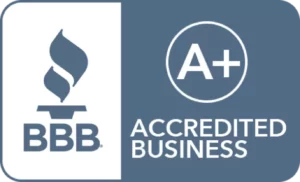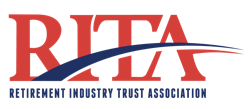IRA Financial Trust Company is committed to helping our clients make safe and financially rewarding investments with their Self-Directed retirement accounts. While Self-Directed IRAs can be a safe way to invest retirement funds, investors should be mindful of potential fraud when using a Self-Directed retirement structure.
Recently, the Securities and Exchange Commission (“SEC”) issued an Investor Alert to warn investors of the potential risks of fraud associated with investing through Self-Directed Individual Retirement Accounts (Self-Directed IRAs and Solo 401(k) plans). The SEC notes that there has been a recent increase in reports or complaints of fraudulent investment schemes that utilized a Self-Directed IRA or Solo 401(k) plan as a key feature.
The IRA Financial Trust Company or any party cannot guarantee the success of any investment and investors should undertake their own evaluation of the merits of a proposal, and should check with regulators about the background and history of an investment and its promoters before making a decision of potential fraudulent schemes when considering a Self-Directed retirement structure. Investors should understand that the custodians of Self-Directed retirement account may have limited duties to investors, and that the custodians and Trustees for these accounts will generally not evaluate the quality or legitimacy of an investment and its promoters. As with every investment, investors should undertake their own evaluation of the merits of a proposal, and should check with regulators about the background and history of an investment and its promoters before making a decision.
What is Fraud?
Fraud occurs when a person or business intentionally deceives another with promises of goods, services, or financial benefits that do not exist, were never intended to be provided, or were misrepresented. Typically, victims give money but never receive what they paid for.
Who Are the Victims?
Virtually anyone can fall prey to fraudulent crimes. Con artists do not pass over anyone due to such factors as a person’s age, finances, educational level, gender, race, culture, ability, or geographic location. In fact, fraud perpetrators often target certain groups based on these factors.
Who Commits Fraud Crimes?
According to the U.S. Government, like their victims, fraud criminals vary educationally, socially, geographically, and financially. Most con-artists make a career of their criminal activities. Some even join professional organizations to legitimize their schemes and project a respectable front.
What Are Some Common Types of Fraud?
The weapon of choice for fraud criminals is not a gun or a knife. Rather, it is most often a telephone, letter, glossy publication, or brochure offering free vacations, merchandise, investment opportunities, or services. Not all frauds involve the direct selling of goods to consumers. Some frauds target institutions or businesses. Examples include:
- Telemarketing fraud (telephone solicitation for phony goods or services)
- Mail fraud
- Health care and insurance fraud
- Pension and Trust fund fraud
- Credit card and check fraud (including fraud by impersonation resulting from theft of mail or credit cards)
- Identity theft
- Fraud related to securities, commodities, and other investments
- Bank fraud
- Embezzlement
- Pyramid or Ponzi schemes
- Advance fee schemes
- Internet fraud
Here is a list of resources for retirement investors seeking information on investments and investment advisors:
- 12 Warning Signs An Investment Is A Scam, by Sy Harding.
- SEC: The SEC provides information on different products, asset allocations and risk.
- FINRA: FINRA provides an online service for investors to check the backgrounds of brokers called Broker Check.
- FINRA’s website also has tools and resources to protect senior investors and help them make informed investment decisions, including “Investor Alerts” that provide timely information on steering clear of investment scams and problems.
- NASAA: The North American Securities Administrators Association (NASAA) also has helpful information available for specific states. This organization is very proactive in providing resources for senior investors.
- FTC: The Federal Trade Commission (FTC) works for the consumer to prevent fraudulent, deceptive, and unfair business practices in the marketplace and to provide information to help consumers spot, stop and avoid them. They also enter Internet, telemarketing, identity theft, and other fraud-related complaints into Consumer Sentinel, a secure online database available to hundreds of civil and criminal law enforcement agencies in the U.S. and abroad. Visit the FTC website or call 877-FTC-HELP.
- BBB: The Better Business Bureau (BBB) www.BBB.org is also an excellent resource for researching businesses that have been reported for fraudulent or deceptive practices.
- AARP: The Association of Retired Persons (AARP) has provided resources and funding for many research projects in various states in order to uncover scams targeted at senior citizens. They also have numerous free publications to help seniors become more astute investors.
- Fox Business – Don’t Lose Your IRA to Fraud, by Gail Buckner,
Tips to Avoid and Prevent Being Financially Cheated
- Shred financial documents and paperwork with personal information before you discard them.
- Protect your Social Security number. Give it out only if absolutely necessary or ask to use another identifier.
- Don’t give out personal information over the phone, mail or the Internet unless you know who you are dealing with.
- Don’t give out passwords for any of your accounts to anyone.
- Don’t give out your credit card numbers to any strangers.
- If you believe the contact is legitimate, go to the company’s Web site by typing in the site address directly or using a page you have previously bookmarked, instead of a link provided in the e-mail.
- Review all offers in writing.
- Be aware of being kept on the phone for a long time.
- Be wary of promises of quick profits, offers to share “inside” information, and pressure to invest before you have an opportunity to investigate.
- Be careful of promoters who use “aliases.” Pseudonyms are common online, and some salespeople will try to hide their true identity.
- Words like “guarantee,” “high return,” “limited offer,” or “as safe as a CD” are red flags.
- Watch out for offshore scams and investment opportunities in other countries.
- Watch out if a company is not registered with the SEC or the Secretary of State where it is located.
- If a financial adviser cannot be found through FINRA.
- Don’t assume that people online are who they claim they are.
- Ask the online promoter whether-and how much-they are being paid to sell the product.
- Do business with people you know.
- Make sure you understand the investment before you invest your money.
- Take your time to make decisions.
- Be sure to talk over all financial decisions with a Trusted family member, friend or financial adviser.
- Report any frauds and any potential investment frauds affecting Americans to local, state or federal regulators.
- Never make a check out to a financial adviser.
- Never allow statements or confirmations to be sent directly to your financial adviser without receiving copies.
- Recommendations from a sales representative based on “confidential information”, an “upcoming favorable research report” a “prospective merger or acquisition,” or the announcement of a “dynamic new product.”
- Never act on a recommendation from your sales representative that you make a dramatic change in your investment.
- Pressure to trade the account in a manner that is inconsistent with your investment goals and the risk you want or can afford to take.
- Do not heed any assurances from your sales representative that an error in your account is due solely to a computer or clerical error. Insist that the branch manager or compliance officer promptly send a written explanation and follow up to make sure the error is fixed.
In general, the best prevention technique is to identify and research the persons, products and companies offering their services. The more education and understanding of the product features, especially investment products, the higher the level of scrutiny can be applied. In the event of any suspicious calls, emails or personal solicitations, report it to the proper authorities.
Always take the time you need to understand and evaluate a potential investment. Make sure you understand the investment you will be making and thoroughly understand how the promoter will be able to generate the returns being promised. Also, make sure the promoter of the investment has the necessary qualifications or licenses, if applicable, to offer the investment. Be cautious if a sponsor or advisor uses the affiliation as the reason to make the investment, rather than relying on the underlying merits of the investment or Trust in the sales person.
Get in Touch
It is highly advisable to consult with a tax attorney or tax professional, about the details of your transaction before using a Self-Directed IRA to make an investment. If you have any questions about fraud, please contact us @ 800.472.1043











